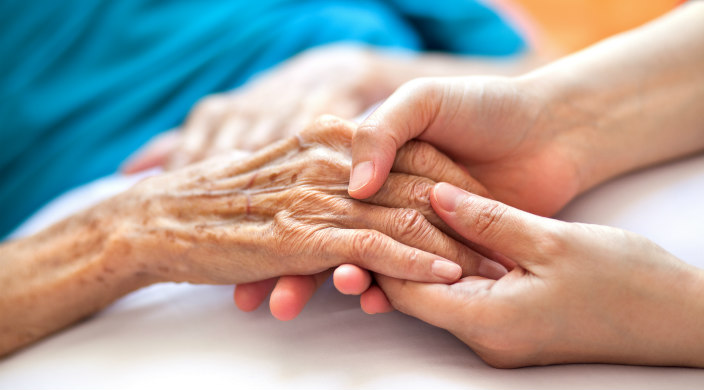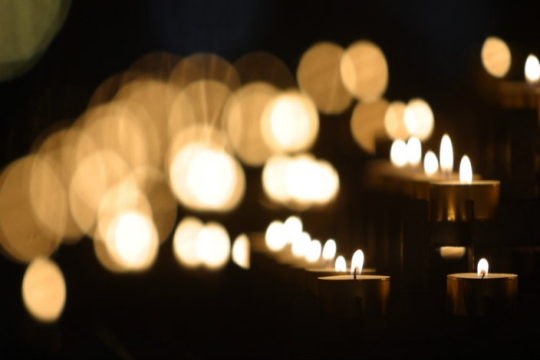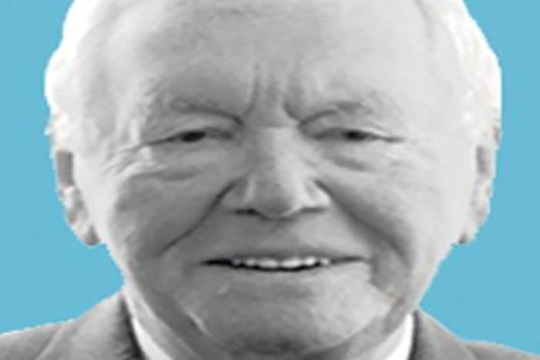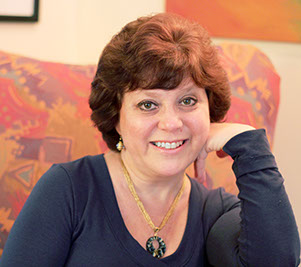
When I was a little girl, some evenings I had trouble falling asleep for fear that one day my mother would die.
As the daughter of an English teacher during the late 1960s, I struggled with separation anxiety and resented having a working mother who was not waiting for me when I came home from school. When I tearfully called my mom to my bed, she explained that I was having my “bad feelings” and reassured me that when I was older, I, too, would have a family and would not be as traumatized by her death as I would be now, when she was very unlikely to die.
I found her words comforting and ultimately, as I grew, true.
As my mother neared age 90 and moved to an assisted living facility, we frequently discussed how she felt about death. A lover of reading, writing, old movies, humor, and politics, words meant everything to her, and she had little interest in living if her verbal strengths were compromised.
My mother frequently expressed gratitude for her exceptional relationships with her children and grandchildren. Well aware that she lived a long healthy life, she made clear that she did not fear death, and she made pre-arrangements for her funeral at the local Jewish cemetery.
She would be interred in a shelf behind my father in a mausoleum, near a few close friends. Her nephews, both rabbis, would officiate at her service. She was assured of moving and funny eulogies from her children, who inherited her gift for writing.
During these months, when I visited her, I tried to imagine her death, as if preparing myself. Of course, this was a useless exercise.
The last few weeks, however, I was not happy with the sound of my mother’s voice on the phone. She sounded raspy and garbled and was reluctant to stay on the phone for long. Conferring with my brothers, we decided to bring her to the ER.
Determining she had pneumonia and was unable to breathe on her own, my mother was intubated, a breathing tube thrust down her throat. Upon hearing this news, my brother and I immediately flew to Florida.
The flight to be with my dying mother was one I had often imagined and dreaded.
When I met my mother in the ICU, she was completely alert, and her alarmed, inquiring eyes asked everything. Without her saying so, I heard, “What am I doing here?” and “Why is there a tube down my throat?” Now in a position to calm her, I said, “You didn’t have a stroke; you didn’t have a heart attack. You are struggling to breathe due to pneumonia, which the doctor is treating.”
But my mother had more questions, which she mouthed beneath the breathing tube that had obscured her lips. Understanding her was impossible. In all the different ways I had imagined her sick and dying, her inability to communicate with me was not included.
For a week, I sat by my mother and felt remarkably present and purposeful. Most of the time, she was sleeping and non-communicative; other times, she was restless and uncomfortable, her arms strapped to the bed to prevent her from pulling her vent from her throat. I offered comforting and loving words, often wondering if we were torturing her.
Throughout the week, my mother showed an inconsistent ability to write, but at one point, she told me to ask the nurse if she was supposed to have a funeral. I wrestled with an appropriate response. I often asked her if she was scared. She consistently shook her head no.
On the sixth day, my mother was able to coherently express in writing exactly how she was feeling. One of her questions to us was worthy of any self-help book: “Am I where I’m supposed to be in my struggle?”
My brothers and I couldn’t help but chuckle at the enormity of this question. She needed a therapist, a philosopher, or a rabbi to respond. Stuck with us, her desperate children, we said she was exactly where she needed to be, waiting to see if antibiotics would help.
When I asked how she felt about waiting, she was clear: “I’m tired. I’m glad that I tried. I’ll stick it out as long as I can. Just let me go. I can’t do this again!!!” Asked about removing the vent, she replied, “Keep it in a little longer.” Each time she wrote, she signed her name as if she was handing over a living will, a legal document.
Despite her wavering, I finally felt free of guilt that we were making her suffer against her will. My mother knew she was dying but did not want to enter death hastily; she wanted to try but had realistic limits. Her final words were the most precious: “RELAX.” “I love you all.” And as we left her room for the evening, “Good night lovely girl and beautiful family-xxxoooo.”
The next day, my mother suffered physically. She wasn’t improving, and doctors informed us that treatment was no longer helping. My mother had written that she would try as long as she could – but she ran out of strength.
We surrounded her and held her as she was given sedation medication, and we gave permission to the nurse to extubate her. Within 10 minutes, she peacefully passed away.
She had tended me during my bad feelings. I had held her hand during hers. Her gift of language comforted me until the very end, even without being able to hear her voice. And now, I am left with memories.
Every time someone important to my mother died, she wrote her reminiscences to their loved ones. Writing, reading, and sharing – the lifeline of the Jewish people – are the very best ways to honor my mother. May her gifts be passed on for generations to come.
Learn more about Judaism and grief on ReformJudaism.org's Death and Mourning page, where you can also find the words to the Mourner's Kaddish.
Related Posts

This Tishah B'Av, Act as if There is No God

Remembering Rabbi Dow Marmur z”l


